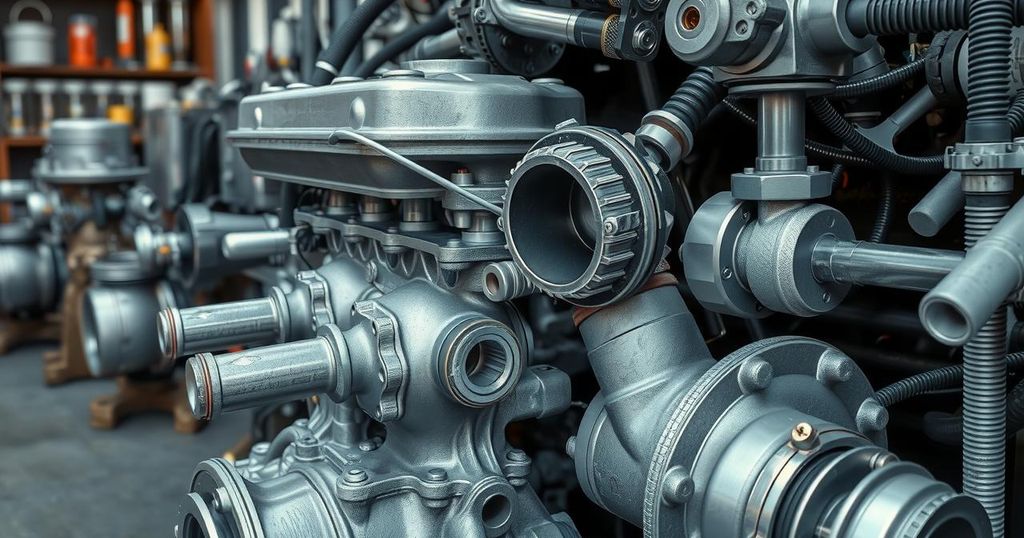Impact of U.S. Auto Tariffs on Thai Auto Parts Exports
Thailand’s Finance Minister announced that new U.S. tariffs will impact auto parts exports. The country hopes to negotiate direct exports to the U.S. to mitigate the effects. Local manufacturers remain cautiously optimistic, with discussions about the future of potential tariffs ongoing.
In a recent statement, Thailand’s Finance Minister Pichai Chunhavajira indicated that the newly imposed U.S. tariffs on automobiles will negatively affect Thai auto parts exports. He expressed a desire to negotiate direct shipments of auto parts to the United States, rather than routing them through other manufacturing countries, to mitigate the impact.
Thailand, recognized as Southeast Asia’s largest automotive production hub, exports to major global manufacturers, such as Toyota and Honda. The U.S. President announced a 25 percent tariff on imported vehicles, which has escalated the global trade conflict and led to backlash from affected nations.
Minister Pichai pointed out that these tariffs would likely diminish Thailand’s auto parts exports to countries that manufacture vehicles. He stated, “We’ll have to see how much it will affect us,” while expressing hope that negotiations could facilitate a smoother process for sending parts directly to the U.S.
Yeap Swee Chuan, CEO of AAPICO Hitech, one of the largest auto parts manufacturers in Thailand, noted that the tariff’s impact may be limited since they predominantly supply local Japanese companies whose vehicles are typically not exported to the U.S. He mentioned, “For the Thai companies, we are quite OK,” as only a minor portion of their production reaches the U.S.
While discussing potential future tariffs announced by U.S. authorities, Minister Pichai indicated that the immediate effects might not be felt. He remarked, “We still have time to see which ones will be affected and how we will negotiate. Let’s wait and see.” Furthermore, there are concerns within Thailand regarding possible U.S. tariffs due to the sizable trade surplus it has with the United States.
In summary, Thailand’s auto parts exports face potential challenges due to new U.S. tariffs. Finance Minister Pichai Chunhavajira is seeking to negotiate direct shipments to America to lessen the impact. Despite concerns, industry leaders like Yeap Swee Chuan remain cautious, suggesting limited repercussions for local manufacturers. The situation warrants ongoing observation as Thailand assesses future tariff developments and responses.
Original Source: www.channelnewsasia.com




Post Comment